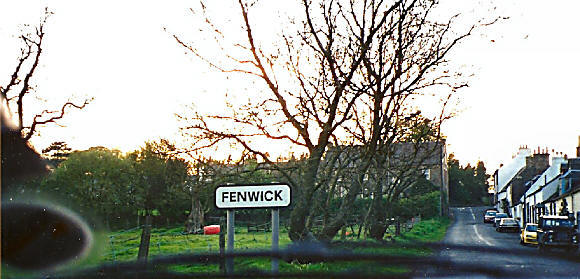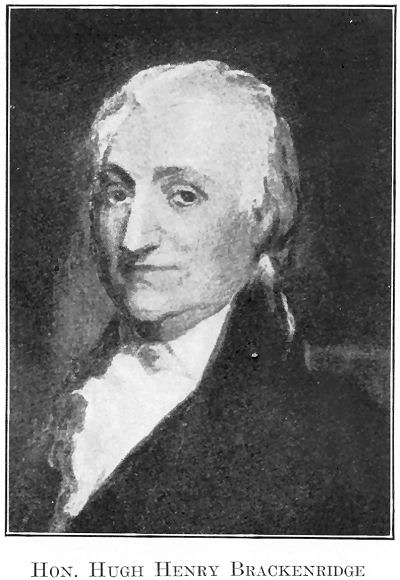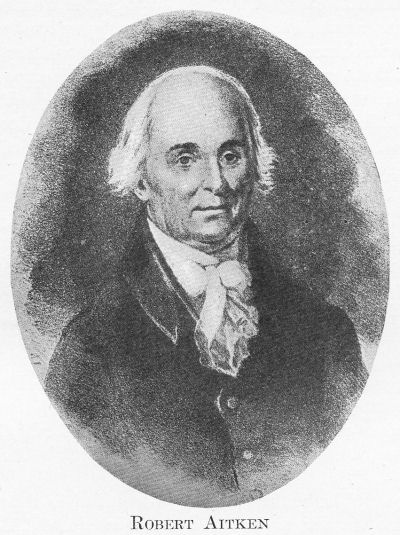his inimitable sketches of his native America. His first book was
published in Great Britain through the influence of Sir Walter Scott.
Irving is chiefly remembered by his Rip Van Winkle and Legend of
Sleepy Hollow and other short sketches that have become classics, and
by his humorous Knickerbocker's History of New York. He also wrote
lives of Goldsmith, Columbus, Mahommed and Washington. In style and
descriptive power, his work is unequalled and his genial humour and human
qualities give him undying popularity.
Edgar Allan Poe (1809-1849), was of
Scottish descent. His great-grandfather, John Poe, came from Ireland to
Pennsylvania about 1745. John’s son, David Poe, fought in the Revolution
and War of 1812. Edgar Allan Poe’s father in 1805 married Elizabeth
Arnold. Both were actors, and their son, an orphan at an early age, was
adopted by John Allan, a wealthy tobacco manufacturer of Richmond,
Virginia, who had him educated in England and at the University of
Virginia.

“Edgar Allan Poe (1809-1849), was
of Scottish descent. His great-grandfather, John Poe, came from Ireland
to Pennsylvania about 1745. John’s son, David Poe, fought in the
Revolution and War of 1812. Edgar Allan Poe’s father in 1805 married
Elizabeth Arnold. Both were actors, and their son, an orphan at an early
age, was adopted by John Allan, a wealthy tobacco manufacturer of
Richmond, Virginia, who had him educated in England and at the
University of Virginia.”
The forgoing are the well known,
correct facts of Edgar Allan Poe. Nevertheless, Poe’s genealogy and
racial heritage have been ascribed foremost to his English mother from
London, Elizabeth, as well as to Poe connections in Ireland.
Nevertheless, it is largely
unknown by Americans that the Scottish immigrants to Ireland were
settled in Ulster, Northern Ireland, by William of Orange. They are well
known by Scots as Ulster-Scots. The distinction of an Ulster-Scot and
the Irish connection proved crucial to an understanding of the error of
scholars who did not know this cultural difference between Presbyterians
and Irish Roman Catholics.
No one has ever conducted any
serious research of the Poes of Scotland. The American Military Academy
of West Point in New York has in its “vertical file” of Cadets, the most
published Family Tree of Edgar Allan Poe, and it is incorrect.
However, the statement, “His
great-grandfather, John Poe, came from Ireland to Pennsylvania about
1745,” is misleading. No questions are asked or answered in available
biographies regarding where John Poe was before Ireland? He was in
Fenwick, Ayrshire, Scotland. And the unraveling of accepted “facts” of
Poe’s heritage continue in 880 pages of new data about Poe’s Scottish
Connections. In 1997, when we first visited Ayrshire, we passed by this
quaint hamlet of Fenwick, not knowing that Poe’s ancestors had once
lived here. The author has labored for 20 years on his research and
writing of Edgar Allan Poe, now set to be available in 2016.
Herman Melville, born in New York in
1819, was of New England Scottish ancestry. His grandfather, Major Thomas
Melvill (1751-1832), was a member of the "Boston Tea-Party"; his father,
Allan Melville, was a merchant, widely travelled and of fine literary
tastes.
Captain Mayne Reid (1818-1883) was
the son of a Presbyterian clergyman and came from Ireland to America in
1838. He spent many years hunting, exploring and travelling in the
Southwest, and devoted his life to writing tales of adventure.
William Lyle, born in Edinburgh in
1822, learned the potters’ trade; afterward came to America and became the
manager of a manufacturing business in Rochester, N. Y. He was author of
The Grave of the Three Hundred; Diotima; The Martyr Queen and Other
Poems; and many occasional poems in dialect.
David Gray (1836-1888) was born in
Edinburgh. He came to America in 1848, and was long identified with the
Buffalo Courier and from 1867 to 1882 was its chief editor. He was
the author of many graceful poems.

John Burtt (1789-1866), a native of
Riccarton, Ayrshire, came to America in 1817 and studied theology at
Princeton. He was pastor of churches in Salem, N. J., and Cincinnati,
Ohio, and in the latter city editor of The Standard. He was a
gifted preacher and poet. His "0'er the Mist-Shrouded Cliffs," is often
ascribed to Burns.
Hew Ainslie, born in Bargeny Mains,
Ayrshire, came to this country in 1822 and died in Louisville, Ky., in
1878. He was the author of the tender little poem,
The Ingleside.
William Wilson, of Crieff, who died
at Poughkeepsie, the father of Gen. James Grant Wilson, was a writer
deserving of mention.
Many of the better known modern
authors, such as Dr. S. Weir Mitchell (already noted), trace their
ancestry to Scottish forebears. Among these may be mentioned the gifted
Maurice Thomson, the late Joel Chandler Harris, creator of Uncle Remus,
Francis Marion Crawford, John Hay, and a host of others.
Donald Grant Mitchell, "Ike Marvel"
(1822-1909), landscape gardener and author, was born of the Connecticut
Scottish settlements. His My Farm of Edge wood; Reveries of a Bachelor;
and Dream Life have been the delight of three generations.
Francis Marion Crawford (1845-1909),
author of many novels, delightful stories of Italian life, was a son of
Thomas Crawford, the sculptor.
John Hay (1838-1905), the famous
statesman and man of letters, was descended from one John Hay, who fought
with the famous Scots Brigade in the Low Countries and whose son emigrated
to America. Two grandsons fought with distinction in the Revolutionary
War. John Hay was secretary to President Lincoln and with Nicolay wrote
the authoritative Life of Lincoln. He was a member of the staff of
the New York Tribune, 1870 to 1875, and was the author of some
books and several popular poems. He was Ambassador to Great Britain, 1897
to 1898, and ranks as one of the greatest American Secretaries of State
(1898-1905). He carried out successful negotiations in connection with the
Panama Canal, the Samoan dispute, and the Alaska boundary questions
growing out of the rush of gold-seekers to the Klondike region, and during
the Boer War.
In the "art preservative" Scots have
played an important part. David and George Bruce, both born in Scotland,
were the inventors of the typecasting machine and the introducers of
stereotyping into the United States. John Baine, a native of St. Andrews,
established the first type-foundry in Scotland, in Glasgow, in 1742. He
removed to London, 1749; to Edinburgh, 1768; and finally, in. 1787, to
Philadelphia. He died about 1790. In 1796, Archibald Binney (1763-1838), a
native of Porto-Bello, near Edinburgh, Scotland, and James Ronaldson
(1768-1841), also born near Edinburgh, formed the famous partnership of
Binney & Ronaldson, typefounders, in Philadelphia, which until 1810 had no
competition either at home or from abroad in the United States. Binney was
probably employed by John Baine; at any rate he acquired all the machinery
established by Baine and made many improvements in the art. Both Binney
and Ronaldson retired with comfortable fortunes.
Thomas Mackellar, of Philadelphia
(1812-1899), in the foundry department; and Scott, Gordon, Campbell and
John Thomson, in the designing and improvement of printing presses have
contributed an important share to the high position that America holds in
the printing world to-day.
John Campbell (1653-1728) issued the
Boston News-Letter, April 24, 1704, the first newspaper published
in the United States.
Robert Aitken (1734-1802), another
Scot., born in Dalkeith., published the Pennsylvania Magazine, in
1775 to 1776, and also printed the first American Bible (1782). Following
a report of the Rev. William White, D.D., and Rev. George Duffield, D.D.,
two of its chaplains, September, 1782, who as witnesses of the demand for
this invaluable book, rejoiced in the present prospect of a supply, hoping
that it would prove as advantageous as it was honourable to the gentleman
who had exerted himself to furnish it, at the evident risk of his private
fortune, Congress voted its approval in the following resolution:
"Whereas, Resolved,
That the United St.ates in Congress assembled, highly
approves the pious and laudable undertaking of Mr. Aitken, as subservient
to the interest of religion, as well as an instance of the progress of the
arts in this country; and, being satisfied from the above report of his
care and accuraev in the execution of the work, they recommend this
edition of the Bible to the inhabitants of the United States, and hereby
authorize him to publish this recommendation in the manner he shall think
proper." The Synod of Pennsylvania in 1783 also recommended the purchase
of this impression and no other. Aitken's magazine was the first published
in Pennsylvania with illustrations, most of which were engraved by
himself. The war interfered with its appearance; the last number issued in
July, 1776, being noteworthy as containing the first publication of the
Declaration of Independence. Aitken is also entitled to he called an
engraver, a number of set pieces and maps, among them The Bottle of
Bunker Hill, being by him.

Major Andrew Brown (1744-1797), born
in the North of Ireland, of Scotch parents, came to America as a British
soldier in 1773; but on the outbreak of the war resigned his commission
and fought with great bravery in the American army. At the close of the
war he opened a classical academy in Philadelphia. In 1788, he took charge
of the Federal Gazette, which he changed to the Philadelphia
Gazette in 1793. His was the first newspaper to employ a reporter for
the debates in Congress. His son, Andrew Brown, Jr., was also a noted
journalist and made many improvements in the news gathering service.
William Young (1775-1829), born in
Irvine, Ayrshire, another Philadelphia printer and publisher, bought out
White & Macpherson’s Directories (about 1790), the first in Philadelphia.
He also published several early editions of the Bible. Later, he retired
to Rockland, Pa., where he engaged in the manufacture of paper.
William Maxwell, of Scottish
descent, published at Cincinnati, the first newspaper in the Northwest
Territory. The first religious paper in the United States was published at
Chillicothe, Ohio, by a Scotch Presbyterian.
In. recent times, among editors of
the first rank, we find as representatives of the Scottish race: James
Gordon Bennett—a thorough Scott, who published the first issue of the
Herald in a Wall Street cellar, Horace Greeley, George William Childs,
Henry W. Grady, Murat Halstead, Samuel Medary, Joseph Medill, James W.
Scott, Alexander K. McClure, John A. Cockerill, Whitelaw Reid, Washington
and John R. MacLean, Joseph B. McCullagh, Richard Smith, John Russell
Young, "Marse Henry" Watterson, "Richelieu" Robinson, Beriah Wilkins,
Robert W. Patterson.
To these must he added the late St.
Clair MeKelway, of the Brooklyn Eagle; Hon. Andrew MacLean, of the
Brooklyn Citizen, a native of Renton, Dumbartonshire; John Swinton,
the friend and associate of Charles A. Dana, on the
New York Sun,
who was nineteen when he sailed from Scotland;
George Dawson, horn in Falkirk, in 1813, long associated with the
Rochester Democrat and with Hon. Thurlow Weed on the Albany
Evening Journal; Arthur Brisbane, the gifted editor of the New York
Evening Journal, of Scottish descent; Peter Ross, author of
Scotland and the Scots; and John Foord, a native of Dundee and
associate editor of the New York Journal of Commerce-—a great
student and admirer of Burns and much in demand for his lectures and
addresses on the poet and his works before St. Andrew’s Societies and
other gatherings.
Librarians and publishers might also
be included in this connection. Of librarians, mention may be made of John
Forbes (1771-1824), librarian of the New York Society Library, who was
born in Scotland. During his life he was prominent in the literary life of
New York City. His son, Philip Jones Forbes, was also librarian of the
same institution from 1828 to 1855, and his son John succeeded him in the
same office.
Peter Carter, publisher, was born at
Eariston in 1825, and in 1832 was brought to the United States by his
parents. In 1840, he entered a bookstore as a boy assistant, and eight
years later he became a partner with his brother in the book-publishing
business, under the name of Robert Carter & Brothers, New York City. At
the same time he found opportunity for much benevolent educational and
sociological work. He published a number of works from his own pen,
including Crumbs from the Land o’ Cakes (1851), Scotia’s Bards
(1853), and a number of children’s books.

